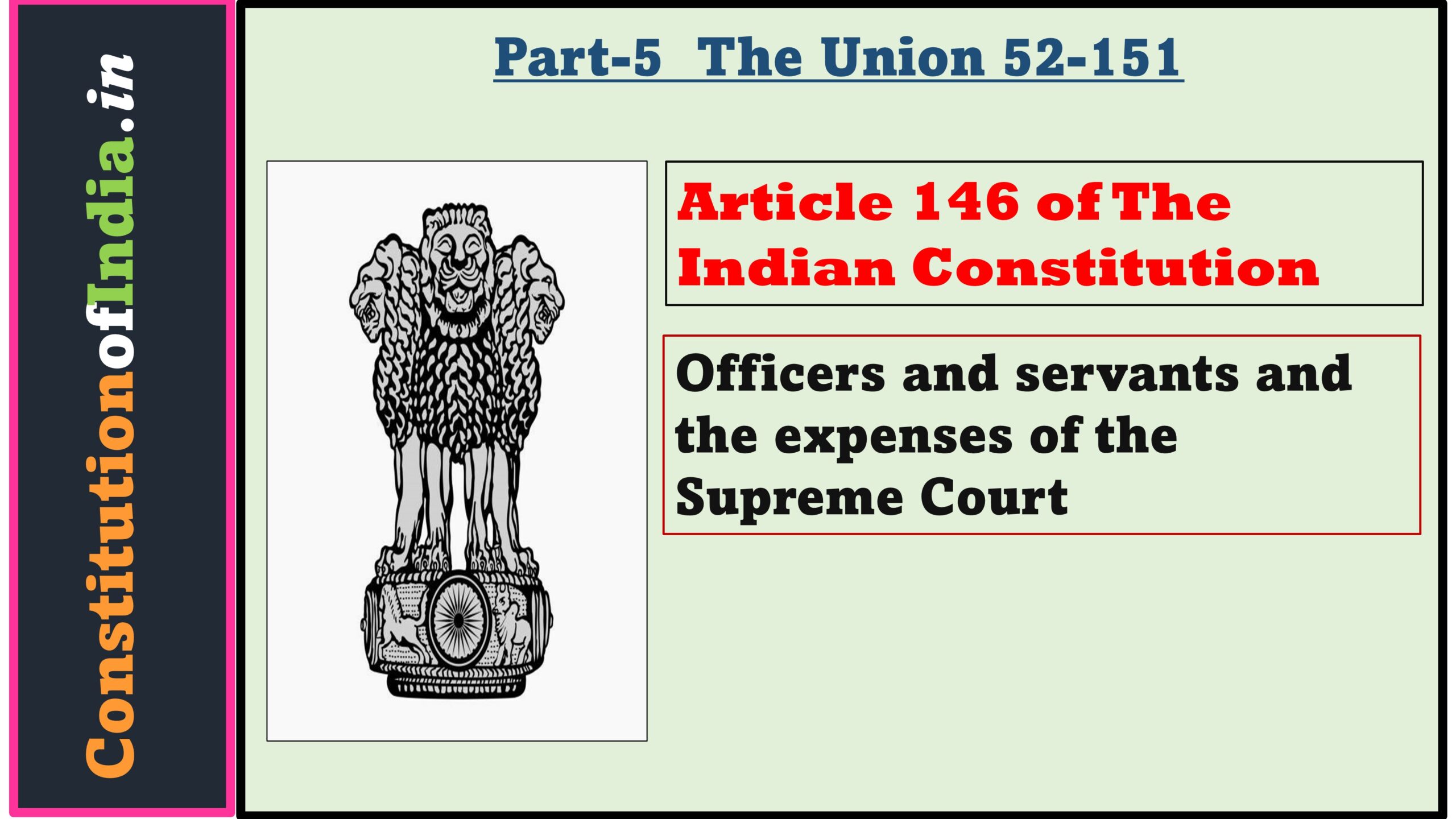Article 146 of Indian Constitution: Officers and servants and the expenses of the Supreme Court.

Article 146 Officers and servants and the expenses of the Supreme Court – Constitution Of India
(1) Appointments of officers and servants of the Supreme Court shall be made by the Chief Justice of India or such other Judge or officer of the Court as he may direct: Provided that the President may by rule require that in such cases as may be specified in the rule, no person not already attached to the Court shall be appointed to any office connected with the Court, save after consultation with the Union Public Service Commission.
(2) Subject to the provisions of any law made by Parliament, the conditions of service of officers and servants of the Supreme Court shall be such as may be prescribed by rules made by the Chief Justice of India or by some other Judge or officer of the Court authorised by the Chief Justice of India to make rules for the purpose: Provided that the rules made under this clause shall, so far as they relate to salaries, allowances, leave or pensions, require the approval of the President.
(3) The administrative expenses of the Supreme Court, including all salaries, allowances and pensions payable to or in respect of the officers and servants of the Court, shall be charged upon the Consolidated Fund of India, and any fees or other moneys taken by the Court shall form part of that Fund.
Article 146 – Officers and Servants and the Expenses of the Supreme Court
📜 Full Text Breakdown & Explanation
Clause (1): Appointment of Staff
- Who appoints? – The Chief Justice of India (CJI) or any other judge/officer he designates.
- President’s Role:
- The President can make rules stating that for certain posts, consultation with the UPSC is mandatory before appointing outsiders (i.e., those not already working in the Court).
✅ Key Point:
The Chief Justice holds primary power over appointments, but in some cases, especially new recruits, UPSC consultation may be required as per rules by the President.
Clause (2): Conditions of Service
- Who decides service conditions? – The Chief Justice of India or someone he authorizes.
- Subject to:
- Any law passed by Parliament.
- For rules on salaries, allowances, leave, or pensions, President’s approval is required.
✅ Key Point:
While the Chief Justice manages service conditions, Parliament and the President have oversight on matters involving financial or policy implications.
Clause (3): Expenses of the Supreme Court
- All administrative expenses (salaries, pensions, etc.) of the Supreme Court are charged on the Consolidated Fund of India.
- All fees collected by the Court go into the Consolidated Fund.
✅ Key Point:
This ensures the financial independence of the Supreme Court—expenses cannot be voted on in Parliament and must be paid.
🧾 In Summary (Chart Format)
| Clause | Subject | Authority / Provision |
|---|---|---|
| (1) | Appointment of officers and servants | Chief Justice of India (or delegate); UPSC consultation required in specified cases |
| (2) | Conditions of service | Set by CJI or delegate; President’s approval needed for financial rules; subject to Parliamentary laws |
| (3) | Administrative expenses | Charged to Consolidated Fund of India; fees go into the same fund |
🧠 Why Article 146 Matters:
- Guarantees independence of the judiciary in terms of staff control and finances.
- Balances power between judicial independence and executive oversight.
- Ensures transparency and integrity in staffing through UPSC involvement.